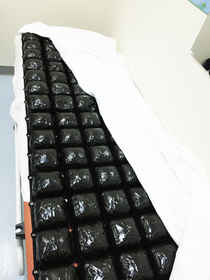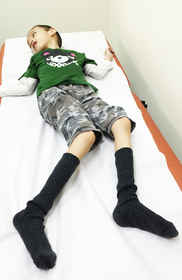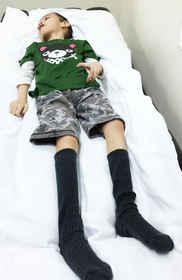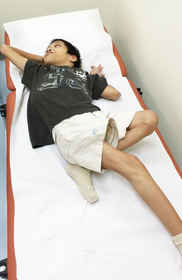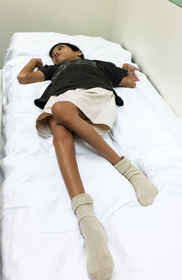Our team treats a range of conditions, including:
Common disorders
Rarer disorders
- Brain Tumours
- Neuromuscular Disorders
- Acute Non-traumatic Encephalopathies
- Neurodegenerative Disorders
- Paediatric Movement Disorders
- Mitochondrial Disorders
Physiotherapist Services
Early intervention and rehabilitation are crucial for children with neurological disorders impacting their physical abilities. This includes conditions such as cerebral palsy, global developmental delay, and muscle disorders such as Duchenne muscular dystrophy and spinal muscular atrophy.
Our physiotherapist services provide family-centric and multidisciplinary support by:
- Empowering parents to make informed decisions about their child’s care.
- Providing preventative care to reduce secondary complications of long-term neurological conditions.
- Utilising technology-driven services, like robotic-assisted rehabilitation and augmented communication devices.
We help to enhance the care of a child with complex needs by:
- Identifying and addressing areas of need for optimal management.
- Improving the quality of life for children and their families by improving sleep comfort and facilitating mobility.
- Ensuring access to state-of-the-art equipment.
- Collaborating with multidisciplinary teams and community-based agencies for comprehensive care continuity.
Rehabilitation (Cerebral Palsy) Service
Our Rehabilitation Service provides comprehensive care for patients with spasticity, who may require specialised seating or wheelchairs. Objective assessments are conducted by paediatricians specialising in neurology, orthopaedic surgeons, orthotists, physiotherapists and occupational therapists. Gait analysis is performed using portable equipment. Treatment options for cerebral palsy include intramuscular botulinum toxin injections, orthotic devices or tendon-release orthopaedic surgery.
Advanced therapies, such as robotic rehabilitation, are available in collaboration with the Centre for Advanced Rehabilitation Therapeutics (CART) at Tan Tock Seng Hospital. Our clinics also focus on preventative care, including hip surveillance, nutritional support and educational interventions.
Neuroscience Laboratory
Our Neuroscience Laboratory provides diagnostic services. These include electroencephalography (EEG) performed by experienced technicians and interpreted by paediatricians specialising in neurology and epileptology. We offer Brainstem Auditory-Evoked Response (BAER) and Visual-Evoked Potential (VEP) tests for children with suspected hearing or visual impairments. Neuromuscular issues are diagnosed and assessed through nerve conduction studies and electromyograms.
Paediatric Epilepsy-Monitoring Unit
Our Paediatric Epilepsy-Monitoring Unit (PEMU) facilitates comprehensive, round-the-clock monitoring of patients with epilepsy requiring further evaluation. or to clarify the nature of the patients' frequent spells or events.The unit accommodates neonates, infants, children and adolescents. Monitoring includes continuous EEG recording with simultaneous video recording of seizures. This detailed analysis aids in accurate diagnosis and the development of management plans, including anti-epileptic medication, ketogenic diet options and surgical treatments for intractable seizures.

